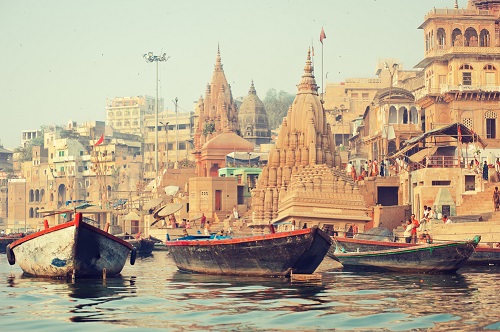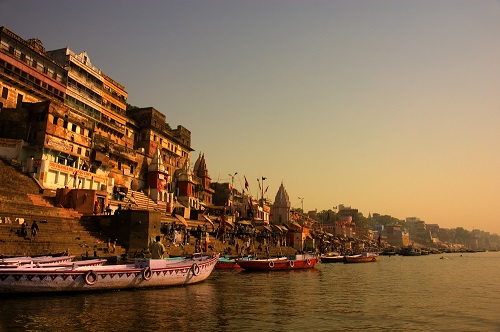In India, your maternity options will depend on whether you are accessing maternity care in the public or the private sector. Most expats resident in the country will have private health insurance, and will not be dependent on the public healthcare system. It is not recommended that you give birth in a public hospital in India.Findings suggest that there are limitations in the private sector as well, when it comes to maternity care. Although private healthcare in India is of a good standard, it appears that maternity care can lag behind. You may wish, therefore, to give birth in your home nation, before moving or returning to India. We will look at some of your options below.
How to decide on a birth plan
A birth plan is a list of what you would like to have happen during labour and immediately afterwards. You may want to write one, so that your doctor knows what your wishes and expectations are. There are a number of things you may want to consider when writing your birth plan:
• Where do you want to give birth?
• Who do you want to have with you (e.g. your partner)?
• What kind of birth do you want (e.g. vaginal birth or a Caesarian)?
• Do you need any birthing aids?
• Do you want pain relief, and if so, what kind?
• What kind of birthing environment would you prefer?
Caesarians are still not common in Indian maternity units, although there is a higher rate of C-sections in the private sector. If you think you may need – or would prefer – a C-section, then you must discuss this with your GP, gynaecologist or midwife.

Indian maternity care
Overall, it cannot be said that Indian maternity care is of a Western standard. The public sector suffers from significant inequalities between rural and urban areas, and also between different states, as well as poor organisation and limited funding. Among the poorer sections of society, take-up of prenatal services remains low, with women relying on community and family advice, and traditional practices. The use of pain relief, such as epidurals, is limited in the public sector, with pain during labour being regarded as normal.
You will not be charged for giving birth in a public hospital. However, most expectant expats opt for private maternity care. As noted above, this also has its limitations.
According to a recent National Family Health Survey, the private maternity sector in India accounts for up to 22% of institutional deliveries in rural areas, and up to 43% of institutional deliveries in urban areas.
A report based on an observation checklist, using 16 clinical standards endorsed by the Federation of Obstetric and Gynaecological Societies of India (FOGSI), was used to assess 201 private sector healthcare facilities in Maharashtra, Jharkhand, and Uttar Pradesh. It concluded that the overall quality of maternity care in private healthcare facilities was poor in all three states, especially with regards to clinical standards relating to management of complications.
You may therefore wish to do some research, before you decide on a private hospital. You are likely to find more advanced maternity care in large private sector hospitals in urban areas.
Home births are permitted, and traditional birth assistants (TBAs) currently attend 37% of home births in India. These TBAs may not be trained to the standard of Western midwives, however.
You should check that your current insurance policy has a maternity clause. Average costs in India in private maternity care, without insurance cover, are currently as follows:
• Regular birth: 15K Rs – 70K Rs (US$205 – US$956)
• C-section: 25K Rs – 200K Rs (US$340 – US$2733)
• Home birth: 35K Rs – 70K Rs (US$270 – US$478)
Maternity insurance plans generally cover up to 50,000 Rs (US$683) worth of expenses.
Most postnatal hospital stays will be for a few days, assuming that there have been no complications. You should take your own maternity supplies and night clothes to the hospital, including diapers. Remember to also take proof of identity and proof of insurance.
You will need to register the birth with your local registrar, and will also need to inform your diplomatic mission.

If you are employed, you should be eligible for maternity leave under certain conditions. In 2017, the country passed the Maternity (Amendment) Bill, which increased the right to paid maternity leave for working women from 12 weeks to 26 weeks, for those with fewer than two surviving children. This is the third highest in the world, but the new legislation applies only to women who work in a company that has at least 10 employees. If this does apply to you, you must also have worked for at least 80 days during the 12 months immediately preceding the date of your delivery.
Out of the 26 weeks, up to eight weeks can be claimed before the delivery, but you can take the entire 26 weeks of leave after the delivery if you would prefer. These are maximum claim periods – you can claim the benefit for a smaller period as well. The law was further amended in 2017 to make it compulsory for organisations with more than 50 workers to establish creches. However, you can also, under maternity law, work from home during some of your leave period, and possibly afterwards. You can negotiate this with your employer.
Employers are not allowed to dismiss a woman for taking maternity leave, nor can they serve a termination notice to a woman on maternity leave that expires before the maternity leave ends.
There is currently no provision for paternity leave under Indian law.
Will the baby be an Indian citizen?
Children born in India on or after 3 December 2004 are considered citizens of India, but only if both of their parents are citizens of India, or if one parent is a citizen of India and the other is not an illegal migrant at the time of the birth. Unless you are in a relationship with an Indian citizen, therefore, your child will not be Indian simply because they are born in India.

